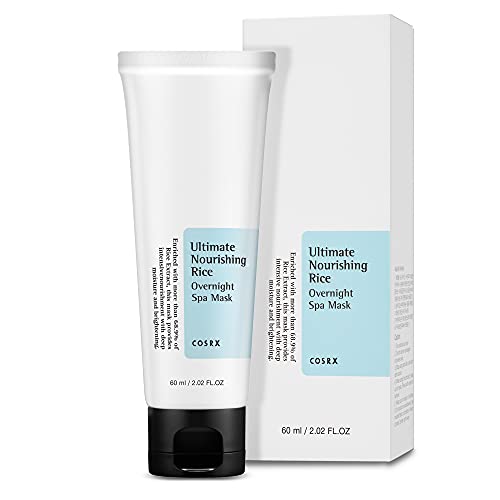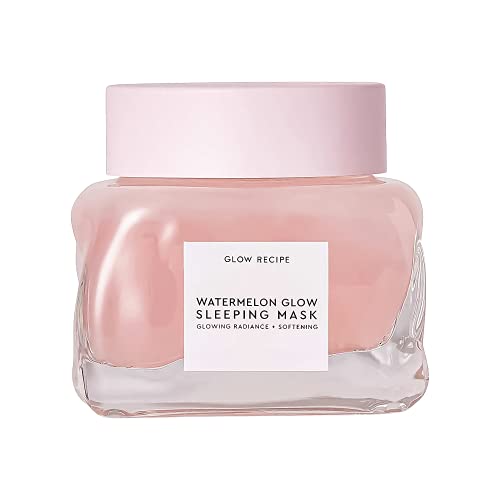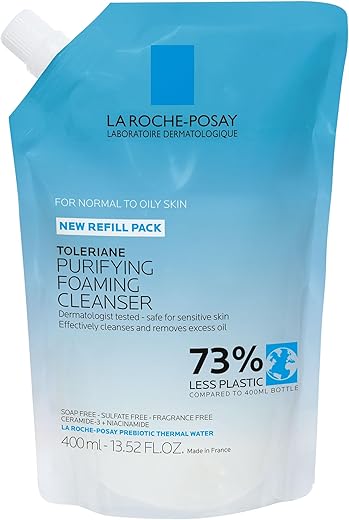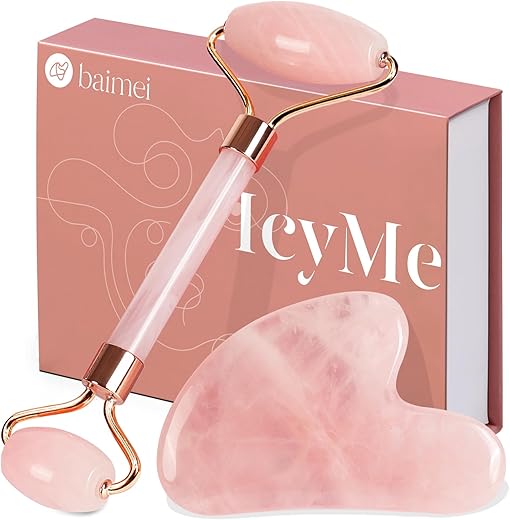
Choosing the Right Overnight Mask for Your Skin Type
Are you tired of waking up to dull, dry skin? We’ve all been there. In our quest for beautiful and healthy skin, we often overlook the importance of overnight hydration. But fear not, for we are here to guide you in choosing the right overnight mask for your skin type. In this post, we will explore the world of overnight masks and how they can transform your skincare routine. Whether you have oily, dry, or sensitive skin, we’ve got you covered. Say goodbye to tired-looking skin and hello to a radiant complexion. Get ready to wake up to the skin of your dreams!
Quench your skin’s thirst with these top-selling overnight hydration masks






What are Overnight Masks?
Overnight masks, also known as sleeping masks, are a popular skincare product that is applied before going to bed and left on the skin overnight. Unlike regular masks that are typically rinsed off after a few minutes, overnight masks are designed to be left on the skin for an extended period.

How do they differ from regular masks?
While both regular masks and overnight masks provide skin benefits, there are some key differences between the two:
- Duration: Regular masks are usually left on the skin for a short period, often 10-20 minutes, whereas overnight masks are left on overnight.
- Intensity: Overnight masks are formulated with higher concentrations of active ingredients to provide deeper hydration and nourishment to the skin.
- Absorption: Regular masks primarily work on the surface of the skin, whereas overnight masks are designed to penetrate deeper into the skin layers, maximizing the absorption of beneficial ingredients.
The Purpose of Overnight Masks
The primary purpose of overnight masks is to provide intense hydration and nourishment to the skin while you sleep. During the night, our skin goes through a process of repair and regeneration. By applying an overnight mask, you can enhance this natural process and wake up to a more radiant and rejuvenated complexion.
Benefits of Overnight Masks
Here are some key benefits of incorporating overnight masks into your skincare routine:
- Intense Hydration: Overnight masks are packed with hydrating ingredients that deeply moisturize the skin, leaving it plump and supple.
- Nourishment: These masks are enriched with various vitamins, minerals, and antioxidants that replenish the skin and improve its overall health.
- Skin Repair: Overnight masks can help repair damaged skin, reduce inflammation, and improve the appearance of fine lines and wrinkles.
- Enhanced Absorption: The extended duration of wearing an overnight mask allows the skin to absorb the beneficial ingredients more effectively.
- Convenience: Applying an overnight mask saves time as you don’t need to rinse it off, making it a hassle-free addition to your nighttime routine.
How to Use Overnight Masks
Using an overnight mask is simple and straightforward. Here’s a step-by-step guide:
- Cleanse: Start with a clean face by washing away any dirt, makeup, and impurities.
- Tone: Apply a gentle toner to balance the skin’s pH level and prepare it for better absorption.
- Apply: Take an adequate amount of the overnight mask and apply it evenly on your face, avoiding the eye and lip area.
- Massage: Gently massage the mask into your skin, ensuring it is evenly distributed.
- Leave on: Allow the mask to fully absorb into the skin by leaving it on overnight.
- Morning Routine: In the morning, cleanse your face as usual to remove any residue.
Identifying Your Skin Type
One of the key factors in choosing the right overnight mask for your skin is understanding your skin type. Every individual has a unique skin type, and selecting a mask that suits your specific needs can make a world of difference in achieving healthy, glowing skin. In this article, we will explore the four main skin types – oily, dry, combination, and sensitive – and how they can influence your choice of overnight mask.



Oily Skin
Characterized by excess sebum production, oily skin can often leave you with a shiny, greasy appearance. People with oily skin tend to have enlarged pores and are more prone to acne and breakouts. When selecting an overnight mask for oily skin, look for products that:
- Control oil production and mattify the skin
- Reduce the appearance of pores
- Offer anti-acne properties
- Provide hydration without adding excess oil
Dry Skin
Opposite to oily skin, dry skin lacks sufficient sebum production, resulting in a parched and tight feeling. Dry skin is prone to flakiness, rough texture, and may even experience itchiness or irritation. The ideal overnight mask for dry skin should:
- Deliver intense hydration and nourishment
- Help restore the skin’s natural moisture barrier
- Soothe and calm any irritation or redness
- Enhance skin’s elasticity for a more supple appearance
Combination Skin
Combination skin is a combination of both oily and dry skin types. It typically exhibits an oily T-zone (forehead, nose, and chin) while the cheeks and other areas remain normal to dry. When selecting an overnight mask for combination skin, consider products that:
- Balance oil production in the T-zone
- Hydrate and moisturize dry areas
- Minimize the appearance of pores
- Offer gentle and non-irritating formulas
Sensitive Skin
Sensitive skin is easily irritated and can react negatively to various environmental factors or skincare products. It is essential to choose gentle and hypoallergenic products to avoid triggering any adverse reactions. When selecting an overnight mask for sensitive skin, look for products that:
- Contain soothing and calming ingredients
- Are fragrance-free and hypoallergenic
- Provide gentle hydration without causing irritation
- Help strengthen the skin’s natural barrier
Comparing the Different Skin Types and Their Mask Needs
To summarize the different skin types and their requirements, here’s a comparison table:
| Skin Type | Characteristics | Ideal Overnight Mask |
|---|---|---|
| Oily | Excess sebum, enlarged pores | Oil-control, pore minimizing, anti-acne |
| Dry | Lack of sebum, tightness | Hydrating, moisture-restoring, soothing |
| Combination | Oily T-zone, dry cheeks | Balancing, hydrating, pore-minimizing |
| Sensitive | Easily irritated, reactive | Soothing, hypoallergenic, gentle hydration |
By identifying your skin type and understanding its characteristics, you can make an informed decision when selecting an overnight mask. Remember, everyone’s skin is unique, so it may take some trial and error to find the perfect mask that meets your individual needs.
Choosing the Right Ingredients
When it comes to overnight masks, choosing the right ingredients is crucial to achieving the desired results. Different skin types have specific needs and concerns, and selecting the appropriate ingredients can make a significant difference in your skincare routine. In this blog, we will discuss the key ingredients to look for in overnight masks based on your skin type, helping you make an informed decision for your skincare regimen.


Oily Skin
If you have oily skin, you’re likely familiar with the challenges it presents, such as excess sebum production and frequent breakouts. To combat these issues, here are some key ingredients to consider when choosing an overnight mask:
- Tea Tree Oil: Known for its antimicrobial properties, tea tree oil can help control oil production, reduce inflammation, and prevent acne breakouts.
- Salicylic Acid: This beta-hydroxy acid (BHA) penetrates deep into the pores, exfoliating the skin and unclogging them. It helps to regulate oil production and reduce the occurrence of acne.
Dry Skin
Dry skin tends to lack hydration and may feel tight or flaky. Overnight masks can provide intense nourishment and moisturization for this skin type. Look for these ingredients to address your dry skin concerns:
- Hyaluronic Acid: Known for its exceptional ability to retain moisture, hyaluronic acid deeply hydrates the skin, leaving it plump and supple.
- Ceramides: These lipid molecules help strengthen the skin’s natural moisture barrier, improving its ability to retain water and preventing moisture loss. Ceramides also help soothe and protect dry skin.
Combination Skin
Combination skin can present a unique challenge as it is both oily and dry in different areas. To cater to this skin type, consider ingredients that balance hydration and oil production:
- Niacinamide: This multi-tasking ingredient helps regulate sebum production, minimize the appearance of pores, and even out the skin tone. It also improves the skin’s barrier function, enhancing moisture retention.
- Glycolic Acid: An alpha-hydroxy acid (AHA), glycolic acid gently exfoliates the skin, removing dead cells and promoting cell turnover. It helps balance the skin’s oiliness and improves overall texture.
Sensitive Skin
Sensitive skin requires extra care and caution when selecting skincare products. Opt for gentle and calming ingredients to avoid irritation and inflammation:
- Aloe Vera: Known for its soothing properties, aloe vera helps calm sensitive skin, reduce redness, and provide hydration.
- Centella Asiatica (Cica): Cica is a plant-based ingredient that has anti-inflammatory and wound-healing properties. It helps soothe and repair sensitive skin, reducing redness and irritation.
Comparison Table
To summarize the key ingredients for different skin types, here’s a quick comparison:
| Skin Type | Key Ingredients |
|---|---|
| Oily Skin | Tea Tree Oil, Salicylic Acid |
| Dry Skin | Hyaluronic Acid, Ceramides |
| Combination Skin | Niacinamide, Glycolic Acid |
| Sensitive Skin | Aloe Vera, Centella Asiatica |
Remember, while these ingredients are beneficial for specific skin types, it’s essential to consider your individual skin concerns and any allergies or sensitivities you may have. Always patch test new products and consult with a dermatologist if you have any doubts or persistent skin issues.
Choose your overnight mask wisely, and let the power of the right ingredients transform your skin while you sleep.
Considering Other Factors
Choosing an overnight mask can be an overwhelming process with so many options available in the market. While factors like skin type and ingredients play a crucial role in making the right choice, there are other important factors to consider as well. In this blog section, we will dive deeper into some of these factors, such as allergies, fragrance preferences, and specific skin concerns like acne or aging. We will also provide you with some valuable tips on reading labels and researching brands.


Allergies: A Crucial Consideration
One of the first factors to consider when choosing an overnight mask is any allergies you may have. Allergies can manifest in various ways, such as skin irritation, redness, or even more severe reactions. To avoid any unwanted allergic reactions, it is important to carefully read the ingredient list of the product you’re considering. Look out for common allergens such as fragrances, preservatives, or certain plant extracts. If you are unsure whether a particular ingredient may cause an allergic reaction, consider doing a patch test before applying the mask to your entire face.
Fragrance Preferences: A Personal Touch
Fragrance is another factor to consider when choosing an overnight mask. Some people prefer products with a subtle scent, while others may opt for fragrance-free options. It’s important to note that fragrances can sometimes cause skin irritation or trigger allergies, especially in individuals with sensitive skin. If you have a known sensitivity to fragrances, it is advisable to choose a fragrance-free or hypoallergenic overnight mask. On the other hand, if you enjoy a pleasant scent during your nighttime skincare routine, look for products that contain natural or essential oil-based fragrances.
Specific Skin Concerns: Addressing Acne or Aging
When selecting an overnight mask, it’s crucial to consider any specific skin concerns you may have. For those struggling with acne-prone skin, look for masks that contain ingredients like salicylic acid or tea tree oil, known for their ability to combat breakouts. If aging is your primary concern, look for masks that contain collagen, hyaluronic acid, or retinol, which can help improve elasticity and reduce fine lines and wrinkles. Keep in mind that different overnight masks cater to different skin concerns, so choose one that aligns with your specific needs.
Reading Labels: What to Look For
Reading labels is essential for making an informed decision when choosing an overnight mask. Here are some key points to look for on the label:
- Ingredients: Ensure that the mask contains beneficial ingredients suitable for your skin type and concerns. Look for natural extracts, antioxidants, and vitamins that nourish and hydrate the skin.
- Formulation: Consider the texture and consistency of the mask. Some masks may be thicker and more occlusive, while others may have a lighter gel-like texture.
- Instructions: Pay attention to the recommended usage and frequency of the mask. Some masks may be designed for daily use, while others are meant to be used only a few times a week.
Researching Brands: Trustworthy and Reliable
Before purchasing an overnight mask, it’s important to research the brand and ensure its credibility. Here are some tips to help you make an informed decision:
- Customer Reviews: Look for reviews from other users to get an idea of the product’s effectiveness and any potential issues or concerns.
- Ingredient Sourcing: Check if the brand sources its ingredients ethically and responsibly. Look for certifications or claims indicating organic or sustainable practices.
- Brand Reputation: Consider the brand’s overall reputation in the skincare industry. Look for brands that prioritize transparency, quality, and customer satisfaction.
By considering these factors and following the tips provided, you can make a more informed decision when choosing an overnight mask that suits your needs. Remember, everyone’s skin is unique, so it may take some trial and error to find the perfect mask for you. Happy masking!
Final Thoughts on Finding the Perfect Overnight Mask for Your Unique Skin Needs
In conclusion, selecting the appropriate overnight mask for your specific skin type is crucial for achieving optimal results. We have discussed the various considerations to keep in mind, from oily to sensitive skin, and the benefits each type of mask can provide. If you are unsure about your skin type or have any concerns, it is always advisable to consult with a dermatologist. Incorporating an overnight mask into your skincare routine can greatly enhance the health and hydration of your skin. So, embrace this simple yet effective step towards a glowing complexion and enjoy the benefits it brings to your overall skincare regimen.

Hey, I’m Ava Wilson—a skincare enthusiast and a certified esthetician. I’m dedicated to sharing my knowledge and empowering others to achieve healthy, glowing skin through simple, effective routines and natural remedies. Join me on this exciting skincare journey, and let’s unlock your skin’s potential for a confident, beautiful you.





